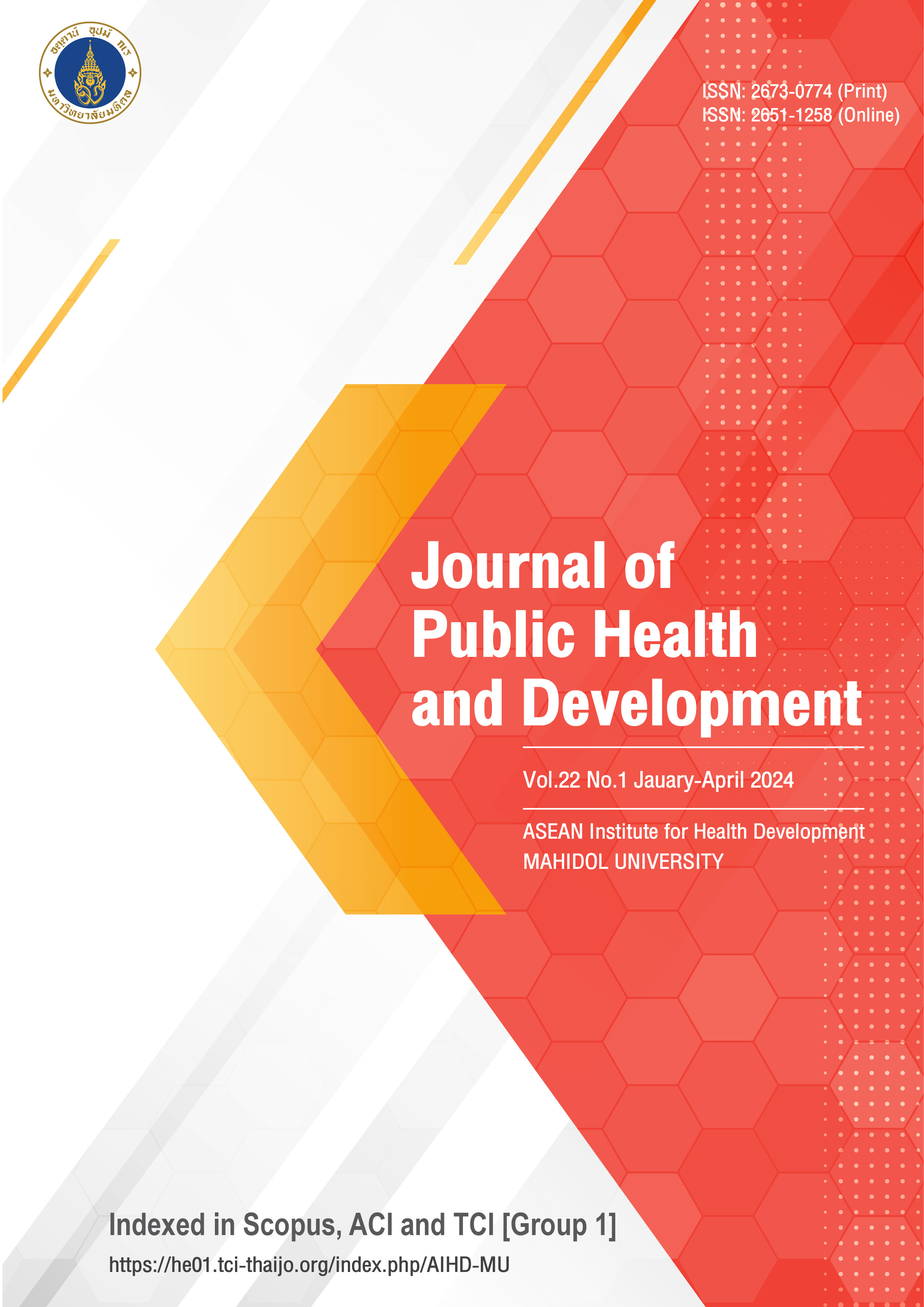A crisis amidst many others: COVID-19 response satisfaction during the economic collapse and post-Beirut port explosion in Lebanon 10.55131/jphd/2024/220102
Main Article Content
Abstract
The COVID-19 pandemic in Lebanon has been compounded by the economic collapse and devastating Beirut port explosion, leading to a severe humanitarian crisis. This study aimed to assess the satisfaction of the Lebanese population with the government's response to the pandemic and evaluate the public perception of the economic crisis and the Beirut port blast's impact on the COVID-19 situation. This is a web-based cross-sectional study that utilized a self-administered questionnaire comprising closed-ended questions with predefined response options. To identify predictors of the governmental response score, a multiple linear regression analysis was conducted. A total of 2,384 participants were enrolled, with a mean COVID-SCORE of 15.38 ± 5.28 (out of 40 points). The majority of participants (2,163, 90.7%) expressed mistrust in the Lebanese government's ability to effectively address unexpected health threats related to the COVID-19 pandemic. Two-thirds of the participants (1,849, 77.6%) believed that the economic crisis had impacted the government's response to the pandemic. Nearly 70% of the participants perceived that the Beirut port explosion contributed to COVID-19 transmission. Government mistrust, along with the economic crisis impact, were significantly associated with lower satisfaction scores (P < 0.001). This study revealed a significant level of dissatisfaction among the Lebanese population regarding the government's response to the COVID-19 pandemic, underscoring a lack of trust in its ability to effectively manage the crisis. The compounding challenges arising from the Beirut port explosion, economic collapse, and depleted resources have further impeded Lebanon's ability to navigate the pandemic successfully. Urgent interventions and collaborative efforts are required to effectively manage the economic and political repercussions, rebuild a resilient healthcare system, and alleviate the humanitarian crisis in Lebanon.
Article Details

This work is licensed under a Creative Commons Attribution-NonCommercial-NoDerivatives 4.0 International License.
References
The World Bank. Lebanon Sinking into One of the Most Severe Global Crises Episodes, amidst Deliberate Inaction [Internet]. 2018 [cited 2023 Jul 7]. Available from: https://www. worldbank. org/en/news/press-release/2021/05/01/ lebanon-sinking-into-one-of-the-most-severe-global-crises-episodes
Corriero AC, Aborode AT, Reggio M, Shatila N. The impact of COVID-19 and the economic crisis on Lebanese public health: Food insecurity and healthcare disintegration. Ethics Med Public Health. 2022;24:100802. doi: 10.1016/j.jemep.2022.100802.
Zheng Y, Xu N, Pang J, Han H, Yang H, Qin W, et al. Colonization With Extensively Drug-Resistant Acinetobacter baumannii and Prognosis in Critically Ill Patients: An Observational Cohort Study. Front Med (Lausanne). 2021;8:667776. doi: 10.3389/fmed.2021.667776
Al-Hajj S, Dhaini HR, Mondello S, Kaafarani H, Kobeissy F, DePalma RG. Beirut Ammonium Nitrate Blast: Analysis, Review, and Recommendations. Front Public Health. 2021;9:657996. doi: 10.3389/fpubh.2021.657996.
Fleifel M, Abi Farraj K. The Lebanese Healthcare Crisis: An Infinite Calamity. Cureus. 2022;14(5):e25367. doi: 10.7759/cureus.25367
Itani R, Karout S, Khojah HMJ, Rabah M, Kassab MB, Welty FK, et al. Diverging levels of COVID-19 governmental response satisfaction across middle eastern Arab countries: a multinational study. BMC Public Health. 2022;22(1):893. doi: 10.1186/ s12889-022-13292-9.
Worlds Health Organization. Lebanon: WHO Coronavirus Disease (COVID-19) Dashboard With Vaccination Data [Internet]. [cited 2023 Sep 22]. Available from: https://covid19.who. int/region/emro/country/lb
Khojah HMJ, Itani R, Mukattash TL, Karout S, Jaffal F, Abu-Farha R. Exposure of community pharmacists to COVID-19: A multinational cross-sectional study. J Taibah Univ Med Sci. 2021;16(6):920-8. doi: 10.1016/ j.jtumed.2021.06.007
Abu-Farha R, Mukattash T, Itani R, Karout S, Khojah HMJ, Abed Al-Mahmood A, et al. Willingness of Middle Eastern public to receive COVID-19 vaccines. Saudi Pharm J. 2021;29(7):734-9. doi: 10.1016/ j.jsps.2021.05.005.
Itani R, Khojah HM, Karout S, Abu-Farha R, Mukattash TL, Rahme D, et al. Oral contraceptive pills shortage in Lebanon amidst the economic collapse: a nationwide exploratory study. BMC Health Serv Res. 2023;23(1):520. doi: 10.1186/s12913-023-09523-3.
Lazarus JV, Ratzan S, Palayew A, Billari FC, Binagwaho A, Kimball S, et al. COVID-SCORE: A global survey to assess public perceptions of government responses to COVID-19 (COVID-SCORE-10). PLOS ONE. 2020;15(10):e0240011. doi: 10.1371/ journal.pone.0240011.
Human Rights Watch. Lebanon: Failure to Address Economic, Political Crisis [Internet]. 2020 [cited 2023 Jul 7]. Available from: https://www.hrw.org/ news/2020/08/03/lebanon-failure-address-economic-political-crisis
Abi-Rached JM, Issa N, Khalife J, Salameh P, Karra-Aly A, Asmar M. Towards a Zero-COVID Lebanon: A Call for Action – Arab Reform Initiative [Internet]. Arab Reform Initiative; 2011 [cited 2023 Jul 7]. Available from: https://www.arab-reform.net/publication/towards-a-zero-covid-lebanon-a-call-for-action/
Moussallem M, Zein-El-Din A, Hamra R, Rady A, Kosremelli Asmar M, Bou-Orm IR. Evaluating the governance and preparedness of the Lebanese health system for the COVID-19 pandemic: a qualitative study. BMJ Open. 2022; 12(6):e058622. doi: 10.1136/bmjopen-2021-058622
The World Bank. Beirut Rapid Damage and Needs Assessment (RDNA) [Internet]. 2020 [cited 2023 Jul 7]. Available from: https://www. worldbank.org/en/country/lebanon/publication/beirut-rapid-damage-and-needs-assessment-rdna---august-2020
Hashim HT, Uakkas S, Reda A, Ramadhan MA, Al Mostafa MY. Beirut Explosion Effects on COVID-19 Situation in Lebanon. Disaster medicine and public health preparedness. United States; 2022;16:1703–4.
The World Bank. Lebanon Economic Monitor, Spring 2023: The Normalization of Crisis is No Road for Stabilization [Internet]. 2023 [cited 2023 Jul 7]. Available from: https://www. worldbank.org/en/country/lebanon/publication/lebanon-economic-monitor-spring-2023-the-normalization-of-crisis-is-no-road-for-stabilization
Azhari T, Bassam L, Saad M. Lebanon’s healthcare on brink of collapse amid crisis, says minister [Internet]. Reuters. 2022 [cited 2023 Jul 7]. Available from: https://www. reuters.com/world/middle-east/ lebanons-healthcare-brink-collapse-amid-crisis-says-minister-2022-01-20/






